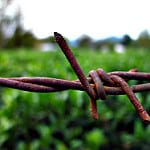A recent meeting in Sri Lanka tried to sell the idea of switching tobacco growers to ‘alternative’ crops. Something needs to be done because the Government is planning to ban tobacco cultivation from 2020.
According to a story in The Lanka Business Online, also from 2020, the Government plans to ban the importation of ‘cigarettes and tobacco’. If tobacco here refers to leaf tobacco, then the country is moving towards prohibition and the repercussions could be enormous.
Sri Lankan consumers’ annual expenditure on cigarettes and tobacco is higher than the annual export revenue the country earns through the EU GSP Plus, according to the Lanka Business story quoting the Industry and Commerce Minister Rishad Bathiudeen. The EU GSP (European Union Generalised Scheme of Preferences) helps developing countries export their products to the EU.
“Reports say that Sri Lankan consumers spend more than Rs200 million per day for cigarettes,” Bathiudeen was quoted as saying.
“According to the World Health Organization, in 2015 the direct and indirect cost of tobacco use in Sri Lanka was estimated at Rs89 billion or US$662 million.”
Bathiudeen was addressing the launch event of the tobacco farmer research report titled Farmer Perspectives on Proposed Tobacco Growing Ban and Opportunity to Diversify, by Dr. Chatura Rodrigo of Green Space Consultancies.
“We annually spend more than $660 million for tobacco use and resulting expenses,” said Bathiudeen. “When we compare this $660 million with some other important values we can understand the huge cost for the economy from tobacco use.
“Sri Lanka’s annual expenditure on tobacco use is even higher than the additional export income from EU GSP Plus, which is around $480 million.”
Bathiudeen said the Government was therefore making attempts to switch the tobacco economy to a more productive livelihood stream comprising alternative, export-driven crops.
Currently, Lanka Business said, more than 3,300 tons of tobacco was reportedly produced in Sri Lanka on 0.07 percent of the country’s agricultural lands.
An expert tobacco panel at the event indicated that tobacco was considered to be an industrial crop, rather than a commercial crop. Since the bulk of the harvest was used for nicotine products, it ended up in industrial/machine processing, unlike many other commercial crops.
Among all types of full-time farmers in Sri Lanka, tobacco growers are some of the most profitable, earning regular margins of 20 percent or higher.
Banning tobacco











